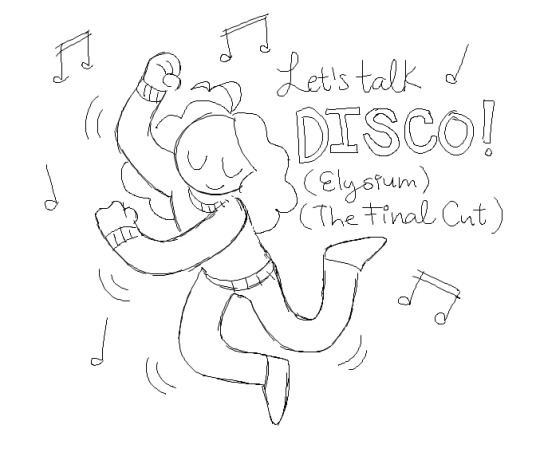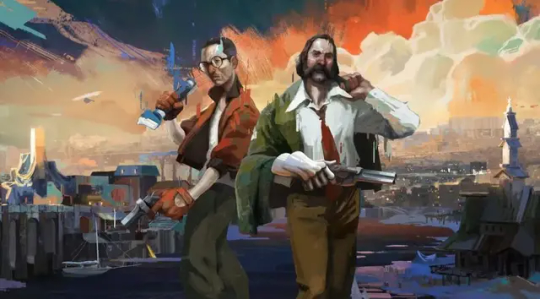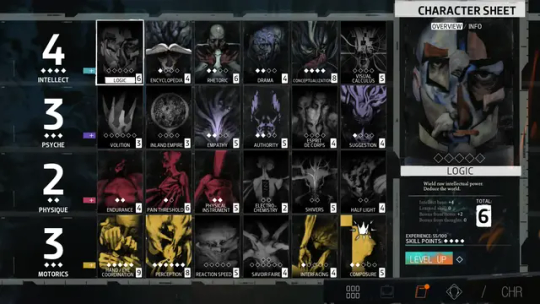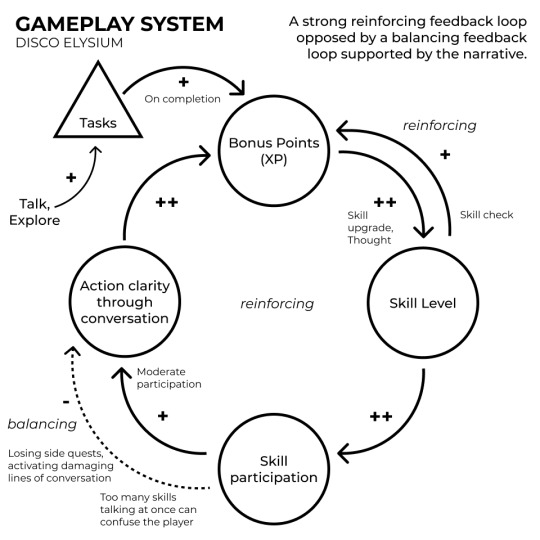#freud's masterplot
Explore tagged Tumblr posts
Text
Andalite Chronicles thoughts (pt. 4):
This book does so much to emphasize that Visser Three really is Esplin 9466 AND Alloran: he has Esplin's arrogance but Alloran's fondness for battle, Esplin's andalite obsession but Alloran's collection of monster morphs and heavy reliance on morph-fighting, Esplin's temper but Alloran's knack for shock-and-awe. Like, Visser Three wouldn't be the guy we see in canon if not for Alloran's influence.
Related: the motif of rigid power structures being a bad damn idea continues in this book. Alloran is more responsible for Alloran getting infested than Elfangor is, and Elfangor takes forever to realize Alloran has been infested, because Alloran has such absolute power over the others.
Would the andalites have been able to take back the taxxon planet, if they'd just bothered to ally with the taxxons? It certainly seems that way, given how well the rebel taxxons do at attacking the spaceport and how incompetent the andalites seem to be at managing the situation. If Elfangor had just stuck around and fought with Arbron, they might've been able to turn the tide of the war right there. Too bad Elfangor didn't have access to a morphing cube when he crashed on this planet...
Seriously, though, I love the use of the taxxons and hork-bajir as Freud Masterplots for the humans: they parallel the humans to show how the humans could end up, if humanity didn't have Animorphs on its side. Waiting for the andalites isn't enough; the hosts have got to be their own heroes or they'll be crushed between the imperial powers no matter whose side wins.
Also, I love the... IDK, identity horror? Of the protagonists' attempt to use the Time Matrix. Like, it shows that the technology is terrifying because it is beyond all human comprehension — but in ways that are scary because they're weird. It answers the question of "why not use time travel to fix everything?" with "because no one knows how to use it effectively, and your brain will tear itself in half if you try."
Animorphs books can be read here | Book Club schedule is here
85 notes
·
View notes
Text
ACADEMIC BLOG POST 1- Narrative: Can It Boogie?

What makes a story compelling? Is there one answer that applies to all narratives, and, if there is, is it so horribly broad as to be utterly useless? From Aristotle to Campbell to Juul, we've been trying to figure out a way to pin down the key to a good story for centuries. Like many modern narratologists we covered in the lecture, I have trouble coming up with an all-encompassing, meaningful theory that's inclusive of the video games I enjoy and traditional narratives. Interactive media, especially video games, can follow a strategy all its own. That's not blasphemous to the media before it.
While researching some articles on ludology for this lecture topic, I came across an article that, while risqué, does have some points to make about the merits of viewing video game narratives through an entirely different lens. I believe Shira Chess's piece The queer case of video games: orgasms, Heteronormativity, and video game narrative to be an extremely welcome takedown of the Freytag and subsequently the Brooks model. It's true that many traditional narratives have a singular climax, and indeed many video games can fall under this mold as well, but at the urging of Chess to consider other viewpoints of ludological narrative, I'm quite pleased at the prospect of games not following that route in favor of "little victories"-- incremental pockets of pleasure in limbo.

Figure 1: The main characters from hit 2019 video game Disco Elysium: The Final Cut
DISCO ELYSIUM
I sincerely doubt Propp had anything like Disco Elysium in mind when he penned his theories, and yet it's a game that rings true to everyone I've known that's played it-- especially myself. It's dense, jam-packed with 20+ hours of fully voice-acted dialogue, and tightly woven into a story both alien and familiar. Sure, it has a beginning, middle, end, and you could even fit some characters into Propp's archetypes in there if you pleased*. Not only is it an interactive narrative, however, it leans into its own absurdity to a degree that can derail the entire story itself. In an interview with some of the minds behind this grand-scale narrative, writer Argo Tuulik admitted that a great deal of Disco Elysium's success is owing to the creative team's naive willingness to explore even the most off-the-wall idea and not being too precious about the moral integrity of its characters. That's something I really, really value in a piece of media; the ability to not let any character be utterly invincible or badass without reason, for even the most level-headed to be open to humiliation and bizarreness.
*Here, I'll rattle some off now: Harry is the hero, Kim is the helper, Klaasje could be a false hero, the Thought Cabinet is a Dispatcher, etc.

Figure 2: Disco Elysium Character Sheet Screen.
Gameplay is almost Dungeons-and-Dragons-esque in nature. As a player, you must level up your skills, each representing a different facet of your ability to do your job. While each route is plotted, this is a massive departure from the narrative styles we are so used to in traditional media.

Figure 3: A brilliant graphic of the Disco Elysium cycle by Gabriel Chauri.
There are standalone events in Disco Elysium, set in stone or otherwise, and they are fantastic, but so much of the fun of the game lies in the mechanics themselves.
As a 2D animator, my skills would still be valuable in creating such a game-- while I'm picking up Blender on the side, Disco Elysium's still utilizes 2D animation and overlays on top of 3D models. It feels grungy and artistic and gross, something I would adore emulating on my own time. Perhaps After Effects can help me out.
Bibliography
Aarseth, E. (2004). Genre trouble: Narrativism and the art of simulation. In N. Wardrip-Fruin & P. Harrigan (Eds.), First person: New media as story, performance, and game (pp. 45–55). Cambridge, MA: MIT Press.]
Brooks, P. (1977). Freud's Masterplot: Questions of narrative. In S. Felman (Ed.), Literature and psychoanalysis: The question of reading: otherwise (pp. 280–300). Baltimore, Md: Johns Hopkins University Press.
Campbell, J. (1949). The Hero with a Thousand Faces. 3rd ed. Novato, Calif.: New World Library.
Chauri, G. (2021). Disco Elysium RPG System Analysis. [online] Game Design Thinking. Available at: https://gamedesignthinking.com/disco-elysium-rpg-system-analysis/ [Accessed 11 Oct. 2023].
Chess, S. (2016). The queer case of video games: orgasms, Heteronormativity, and video game narrative. Critical Studies in Media Communication, 33(1), pp.84–94. doi:https://doi.org/10.1080/15295036.2015.1129066.
Freytag, G. (2012). Freytag's technique of drama: An exposition of dramatic composition and art. London: Forgotten Books. (Original work published 1863)
Inderwildi, A. (2021). What the Epic of Gilgamesh can tell us about Disco Elysium’s most troubling character, the Deserter. mashxtomuse. Available at: https://www.mashxtomuse.com/single-post/what-the-epic-of-gilgamesh-can-tell-us-about-disco-elysium-s-most-troubling-character-the-deserter [Accessed 14 Oct. 2023].
Juul, J. (2005). Half-real : Video games between real rules and fictional worlds. Cambridge (Massachusetts, Usa): The Mit Press.
Roof, J. (1996). Come as you are: Sexuality and narrative. New York: Columbia University Press.
Williams, L. (2022). How a collaborative writing process birthed Disco Elysium. [online] Games Hub. Available at: https://www.gameshub.com/news/features/disco-elysium-narrative-writing-process-18597/ [Accessed 1 Nov. 2023].
ZA/UM (2019) Disco Elysium: The Final Cut [Video game]. ZA/UM
0 notes
Quote
Narrative is essentially the articulation of a set of verbs. These verbs articulate the pressure and drive of desire. Desire is the wish for the end, for fulfillment, but fulfillment must be delayed so that we can understand it in relation to origin and to desire itself.
Peter Brooks, “Freud’s Masterplot”
2 notes
·
View notes
Quote
Any final authority claimed by narrative plots, whether of origin or end, is illusory.
Peter Brooks, “Freud’s Masterplot”
0 notes
Quote
Plot starts (or must give the illusion of starting) from that moment at which story, or “life,” is stimulated from quiescence into a state of narratability, into a tension, a kind of irritation, which demands narration.
Peter Brooks, “Freud’s Masterplot”
0 notes
Quote
Analysis, Freud would eventually discover, is inherently interminable, since the dynamics of resistance and the transference can always generate new beginnings in relation to any possible end.
Peter Brooks, “Freud’s Masterplot”
0 notes